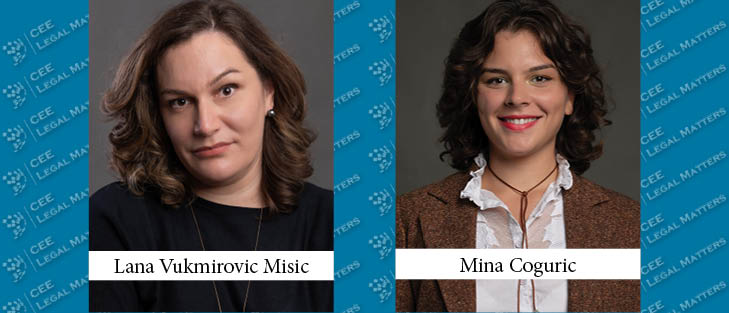SPCG is reporting having obtained a successful result for client Tesco Polska in the Court of Appeal in Krakow in a dispute with a contractor concerning the legal nature of guarantee deposits securing their due performance.
According to SPCG, the case "concerned an important issue, from the business trading perspective, namely the legal nature of the amounts retained by Tesco Polska (as the investor) as guarantee deposits securing the due performance of the construction works contracts concluded by the parties, in particular during the period of implied warranty for defects in construction works."
The firm explained that "the points of the dispute between the parties were not, however, the defects in construction works, as those did not, as a rule, manifest themselves at the time of the implied warranty, but the discrepancies in the jurisprudence and literature on the legal nature and the purpose of establishing such a security. On the one hand, the view expressed by the claimant, that the amounts retained under the guarantee deposit represent part of the remuneration due to the contractor for the performance of a non-cash consideration related to the performance of certain construction works, which maturity date is after the expiry of the implied warranty period for defects in works. On the other hand, the view presented by Tesco Polska, according to which the amounts retained under the guarantee deposit are separate security from the remuneration, established on the basis of an accessory guarantee deposit agreement, the essence of which is the transfer by the debtor to the creditor the property right to the security (in this case cash), in order to secure claims related to the implementation of a secured legal relationship (causa cavendi), in this case the construction works contracts."
The claimant, who is the general contractor of the construction of the commercial premises, requested that Tesco Polska return the amounts it had retained to secure claims related to the performance of several construction contracts. According to SPCG, "the claimant has argued that the amounts retained by way of security are only part of the remuneration due to the contractor in relation to construction works and therefore constitute a cash consideration, the sole non-cash equivalent of which is the performance of construction works. It also indicated that retained amounts secure implied warranty claims for defects in the built commercial premises and therefore, after the expiration of the implied warranty period for defects in such premises, in the absence of any defects being revealed in the works carried out during the implied warranty period, the amount of security should be fully repaid to the contractor. Such consideration should be made by the investor immediately after the expiry of the implied warranty period, and any possible delay of the investor in the return of the security results in the obligation to pay interest for late payment in accordance with the provisions of the Act on Payment Dates in Commercial Transactions. All additional contractual provisions conferring on the contractor any obligations, other than the execution of works, conditioning the return of the retained amounts (for example, indication that the general contractor has satisfied the claims of its subcontractors) are contrary to the nature of the construction works contract and as such are affected by the sanction of invalidity."
Nonetheless, according to Tesco Polska, the retained security deposit shall not be identified with a part of the general contractor's remuneration for construction works, since it is a separate, from such remuneration, security established by the parties under a separate security contract (even if included in the construction works contract). Consequently, the contractor cannot claim that the performance of the construction works itself entitles him to claim the repayment by the investor of the amount of the security, since the contractual terms and conditions of repayment of the paid security deposit, in particular relating to the satisfaction of the subcontractors of the general contractor, are decisive. It cannot therefore be argued that in this case we deal with any commercial transaction within the meaning of the Act on Payment Dates in Commercial Transactions and that the retention of the deposit by the investor after the expiry of the implied warranty period results in the obligation to pay the interest provided for by that law. The contract concluded by the parties, on the basis of which the security deposit was retained, does not constitute a commercial transaction but is accessory in nature in relation to the secured legal relationship and the subject thereof is not the delivery of goods or services, but solely the transfer of funds (guarantee deposit) to secure the proper performance of the construction works contract."
The Court of Appeal in Krakow fully agreed with SPCG's arguments made on behalf of Tesco Polska regarding the legal nature of the amounts retained by the investor as security deposits, in particular regarding the permissibility of the return of the securities, "being dependent on the fulfillment of other conditions than the performance of the sole construction works and the lack of basis to view the amounts retained as the security in terms of consideration, to which the provisions of the Act on Payment Dates in Commercial Transactions will apply." According to SPCG, "pointing to the claimant’s failure to prove that it has satisfied in full the claims of its subcontractors, the Court held that the conditions for the return of the amounts retained as security have not been met. As a result the Court of Appeal in Krakow has changed the judgment of the court of first instance in this case, in such a way that it has dismissed in full the claim for the return of such securities."
Tesco Polska was represented by SPCG Partner Jakub Gorski, Senior Associate Pawel Wec, and Associate Pawel Lekawski.


















